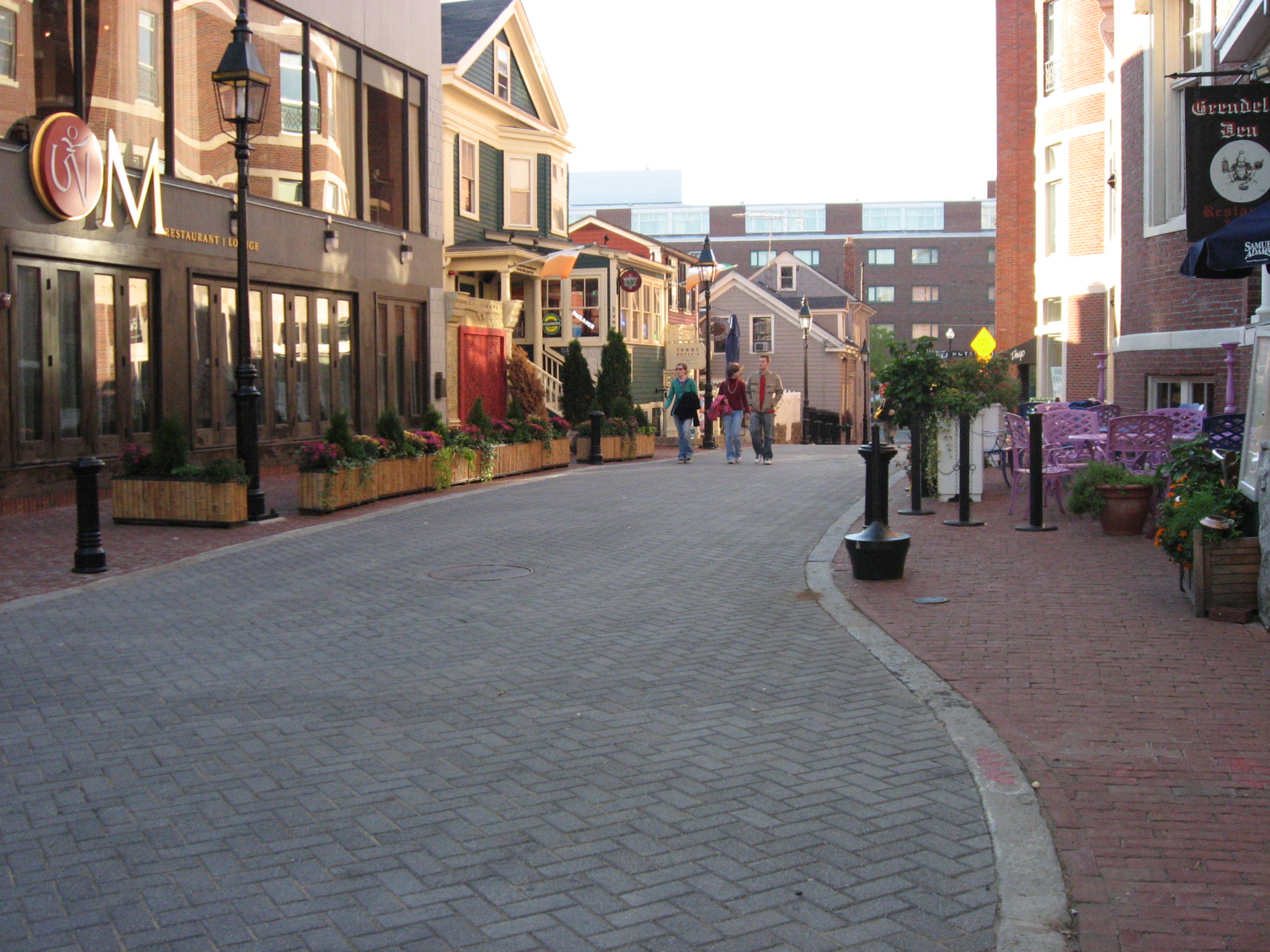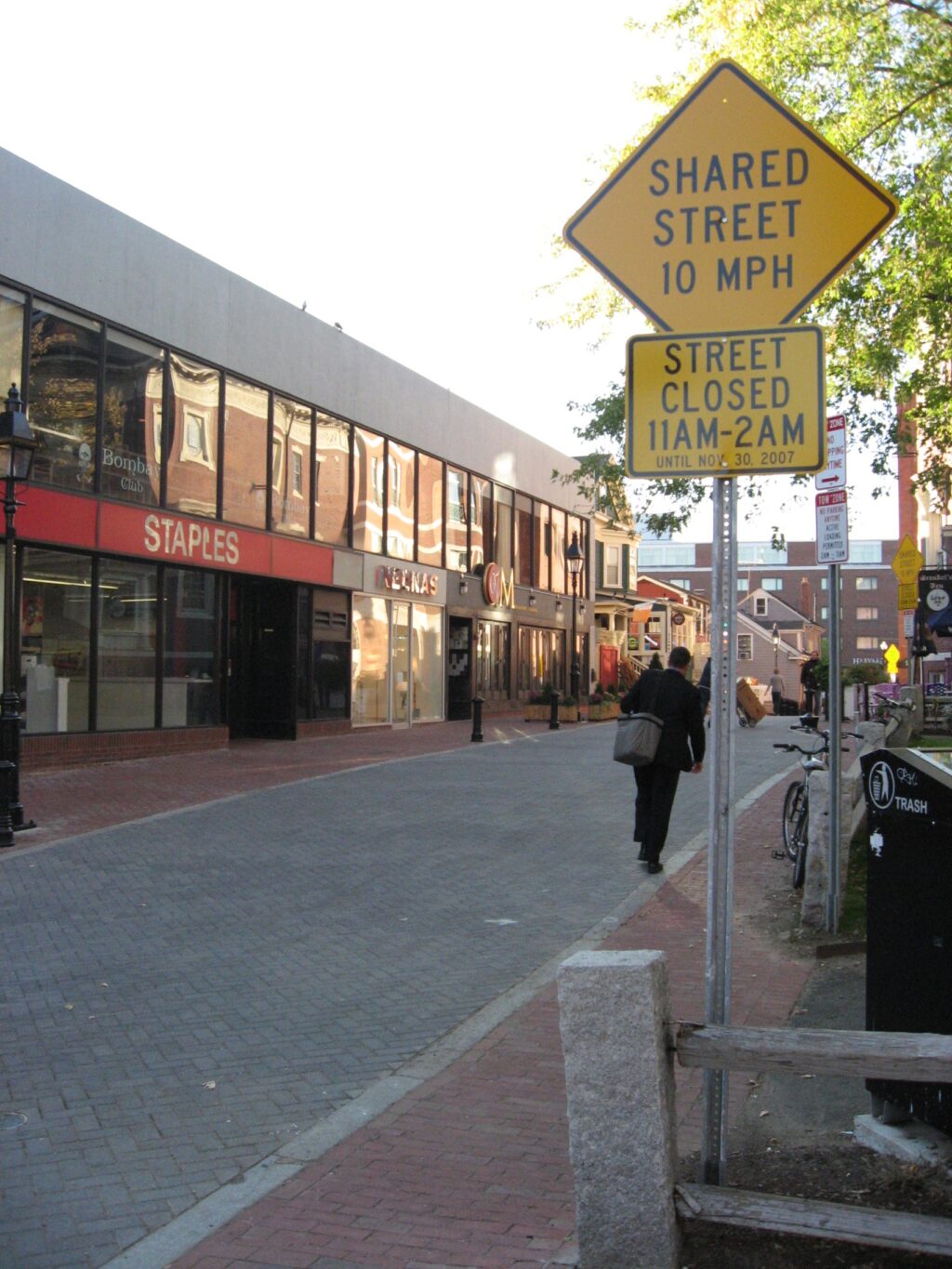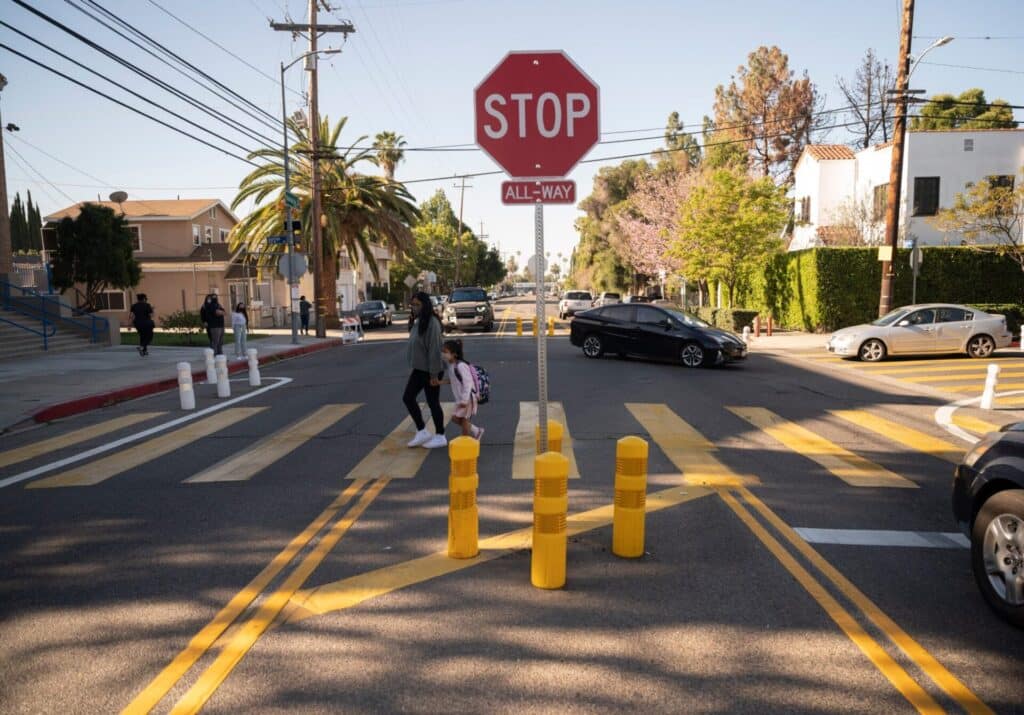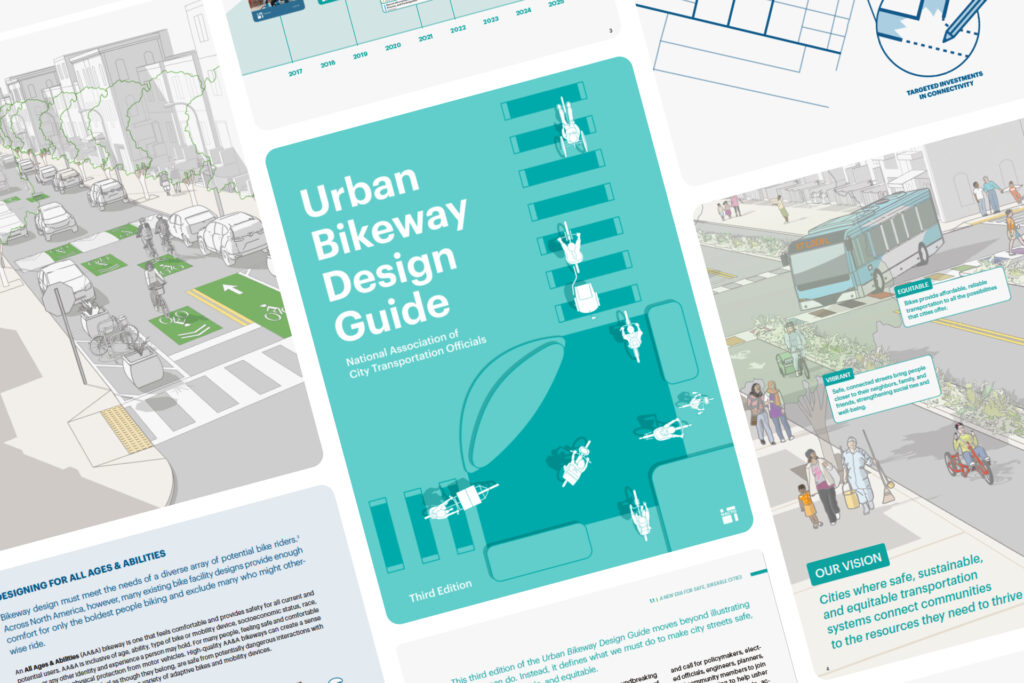
The City of Cambridge converted Harvard Square’s Winthrop Street into a shared street in 2007, and Palmer Street shortly after. Previously, each travel mode had a designated space, and the street was cramped and poorly maintained. Conversion to a shared street allowed for more efficient use of space on a small street, accommodating pedestrians, bicyclists, outdoor diners and motorists. Shared streets in Cambridge have transformed the public space, integrating and balancing commercial uses, street performers, restaurant activity, and transportation into an aesthetically-pleasing design.
Prior to the project, Winthrop Street had narrow sidewalks and uneven pavers that created an inhospitable environment for pedestrians. Furthermore, the street failed to meet accessibility standards of the Americans with Disabilities Act. With vehicle volumes under 1,000 ADT but high pedestrian traffic, the street already implicitly functioned as a shared street; the City’s project formalized it.

Maintenance
Cambridge used standard color, interlocking concrete pavers, which facilitated easy maintenance. On Palmer Street, the use of in-ground lighting has proven more challenging to maintain. Similarly, bollards installed to protect buildings on Palmer Street have suffered some wear-and-tear from truck traffic.
Snow Removal and Stormwater Management
In Cambridge, property owners are responsible for removing snow from sidewalks, and the City removes snow from the street. After conversion to a shared street, these delineations are less stark. In Harvard Square, property owners have proactively shouldered the additional snow removal responsibilities, but shared residential streets may prove more challenging. Stormwater management is also a consideration, because removing a curb changes runoff flows. To prevent puddling near buildings, shared streets in Cambridge grade towards a small gully in the center of the road.
Interagency Coordination
Multiple government departments have worked collaboratively to realize Cambridge’s shared streets. The Community Development Department managed the design process and community involvement through a citizen advisory committee. Public Works is responsible for reviewing the project design regarding long-term maintenance and accessibility issues. The Traffic, Parking and Transportation Department oversees traffic and parking regulations, ensuring that deliveries are still feasible. Champions at the Harvard Square Business Association, the Harvard Square Design Committee, and the Historic Commission have also contributed to the success of the shared streets.
Future Projects
Cambridge plans to convert two dead-end residential streets with very limited sidewalk widths into shared streets. Residents are requesting additional street trees, but the sidewalk is not wide enough to both replace trees and maintain the sidewalk. Converting to a shared street will allow the city to preserve street trees and accessibility.


